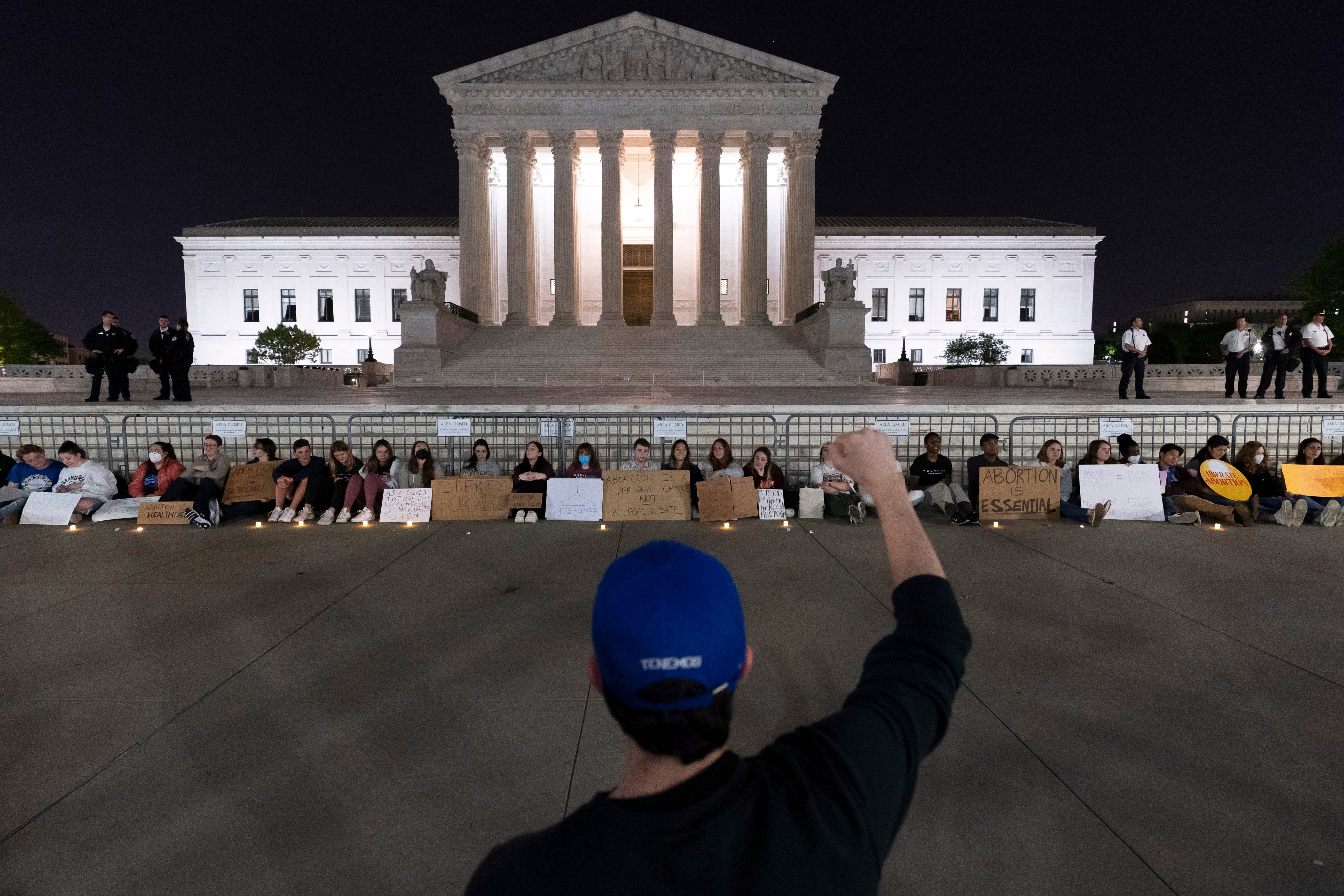Roe v Wade: My pregnancy reveal was a message about abortion – for very good reason
Make no mistake: women will continue to have abortions if Roe is overturned – but many of them will die trying


Being far too old for TikTok, and something of a social-mediaphobe, there was no gender reveal announcement accompanying the early days of my pregnancy. Instead of releasing blue balloons or cutting into a cake filled with themed candies, I inadvertently announced my pregnancy in a post about abortion.
It was 2018; the then president Donald Trump had reinstated the global gag rule rescinded by Barack Obama, effectively blocking sexual health clinics that provide access to abortions from using federal funding. Numerous states were gearing up to limit abortion – in short, a prelude to the current potential overturning of landmark abortion law Roe v Wade.
“Being pregnant, I strongly believe that if you’re going to feel like crap for nine months, it damn well better be your choice,” I wrote. “This is a weird pregnancy announcement,” my cousin responded. He may have had a point, but three years into parenthood, the sentiment remains.
Having gone through IVF, there is nothing in the world I wanted more than a child – my son is without any shadow of a doubt the best thing that’s ever happened to me. You can’t help but speak in clichés when you’re a parent, because that heart-bursting, engulfing love is incredible and life-changing. And that’s it – I wanted that change. The things that came with it – the traumatic labour in which I lost litres of blood and thought I would die, the years of no sleep, the confusing loss of self when grown adults call you “mom” because your only function is in relation to your parental status – well, I could cope with that because it came along with the thing I wanted most in the world.
The idea of forcing a woman to continue with a pregnancy, forcing her to break her body to birth a baby, is appalling. It not only speaks to a brutal lack of concern for our bodily autonomy, but a fundamental lack of understanding about the risks of childbirth which, even in 2022, still result in maternal mortality (23.8 deaths per 100,000, according to latest US data from 2019 – and the US has one of the highest maternal death rates in the developed world). The outcome is poorer for women of colour, whose maternal mortality rate is two to three times higher than that of white women. Is it any surprise, then, that of the five justices whose votes are said to accompany the draft opinion, four are male, and all of them are white?
This is the perfect illustration of presidential legacy far outlasting the terms of presidents themselves, and is exactly what liberals feared when divisive Trump was able to choose three of the nine justices during his time in office. It’s also a persuasive argument for the nation’s highest court needing to more closely represent its population – there is something particularly galling about life-changing healthcare laws being passed by people they will never affect.
This scenario has long been dreaded by abortion providers, who know all too well that a decision to overturn Roe (which will likely be taken up as a complete ban on abortion by around half the US states), isn’t really a ban on abortion – it’s a ban on safe abortion. Latin America currently has one of the highest abortion rates in the world, yet the region imposes some of the most stringent anti-abortion laws.
A ban on safe abortion access will also have a far greater impact on women who have limited financial means to get out of their state, who are too young and frightened to ask for help, or who have limited family support; in short, women who are already in a less fortunate position. Make no mistake: women will continue to have abortions – but many of them will die trying. As the court considers overturning Roe, emotions will run high on both sides of the debate, with numerous voices wanting a say. I’ll be listening to the women whose lives will be changed forever depending on the outcome.
Join our commenting forum
Join thought-provoking conversations, follow other Independent readers and see their replies
Comments
Bookmark popover
Removed from bookmarks